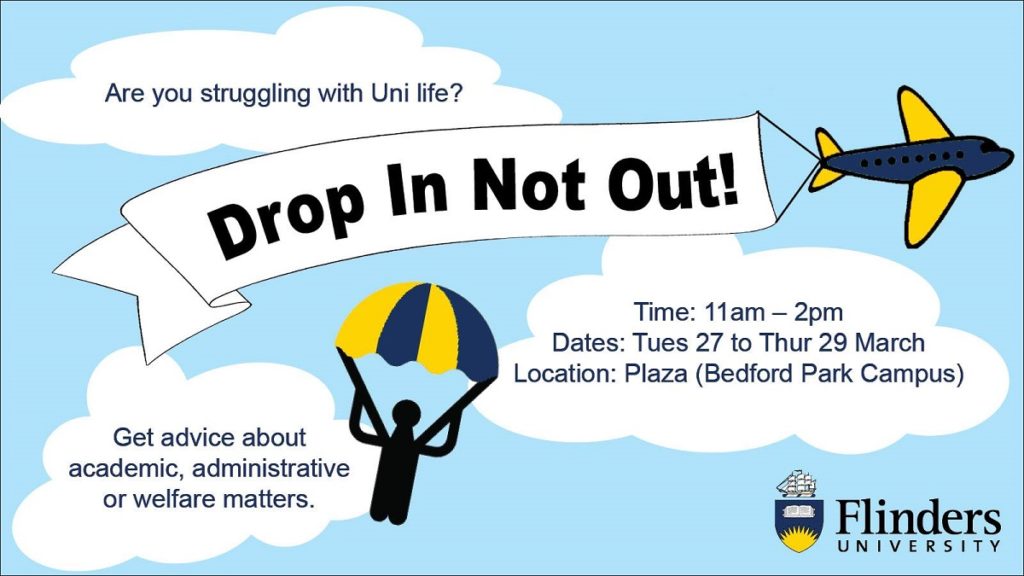
Around this time of year, we meet a lot of students who are feeling a little overwhelmed and anxious about the university experience. They might be finding the work itself challenging, not enjoying their choice of topics, or struggling to balance study with the rest of their life.
They are asking themselves if they have might the right choices in terms of topics and degrees, whether they are cut out for university life, and whether they can mentally and physically handle the demands of study.
Naturally they start to consider whether they should drop out or not.
First up, remember that you are not alone. There are lots of students going through the same process as you. University study is a very different experience, regardless of whether you are coming fresh from high school, returning after years in the workforce, or have traveled from abroad to study in Australia.
Second, know that some stress and anxiety is normal when adjusting to a very new situation like university study. Experiencing stress during this period is not necessarily an indicator that you have made a bad decision, or that you can’t cope. Implementing some simple coping strategies can be enough to help you get centred.
Third, make sure you speak up. A lot of students stay silent on the fact that they aren’t coping, and things start to build up. By the time they speak up, things are repairable but there are unpleasant consequences.
So here is a bit of a mental game plan to follow if you are considering quitting or dropping out:
1) Know the critical enrolment dates, the implications of withdrawal and the situation regarding fees if you withdraw following the census date. For example, withdrawing from a topic before the census date (30th March) means you won’t incur student contribution amounts, tuition fees and student services and amenities fees. Withdrawing from a topic before the 11th May means it won’t count as a failure on your academic record. If you know these dates, you know when you have to make important decisions by.
2) Have a chat with family and friends – people that you trust. Tell them what is happening. Use those conversations to help you clarify what the issue is. Is the work too hard? Are you finding you don’t have enough time? Is the topic/degree a poor fit with you?
3) Read this page on the Transitions website – it covers most of the relevant issues for students thinking of dropping out.
4) Contact Flinders Connect or Student Assist. The reality is there are a few different groups within the university that might be able to help point you in the right direction. Be patient though. The first people you speak to might not necessarily be the ones that end up helping you out.
5) Have a chat with your course coordinator or College office. They’ve seen students struggle with similar issues in the past. They are also particularly useful if your concerns relate to the course itself.
6) Contact the counselling team. I should warn you though. Demand for counselling services during March is very high, as other students are tackling the same issues you might be. Check out our feeling stressed page, which links to a number of resources that you can use to get your mojo back.
7) Contact the disabilities team if you have a physical or mental disability that is impacting, or is likely to impact on your studies. They can help negotiate adjustments for students, to improve access to their study and the university. Similar to counsellors, be mindful that demand for these services during March is very high.
8) Assuming you read this in time, get along to the Drop In Not Out sessions from the 27th to the 29th March at the Plaza, Bedford Park Campus. Representatives from many services (including ours) will be there to answer your questions.

I can’t guarantee that these 8 steps will solve everything, but it will put you in a much better position to make decisions about your study future.
Remember also, that we (Flinders) want you here with us, and want you to have a great university experience. We will do our best to help you work out what to do.

